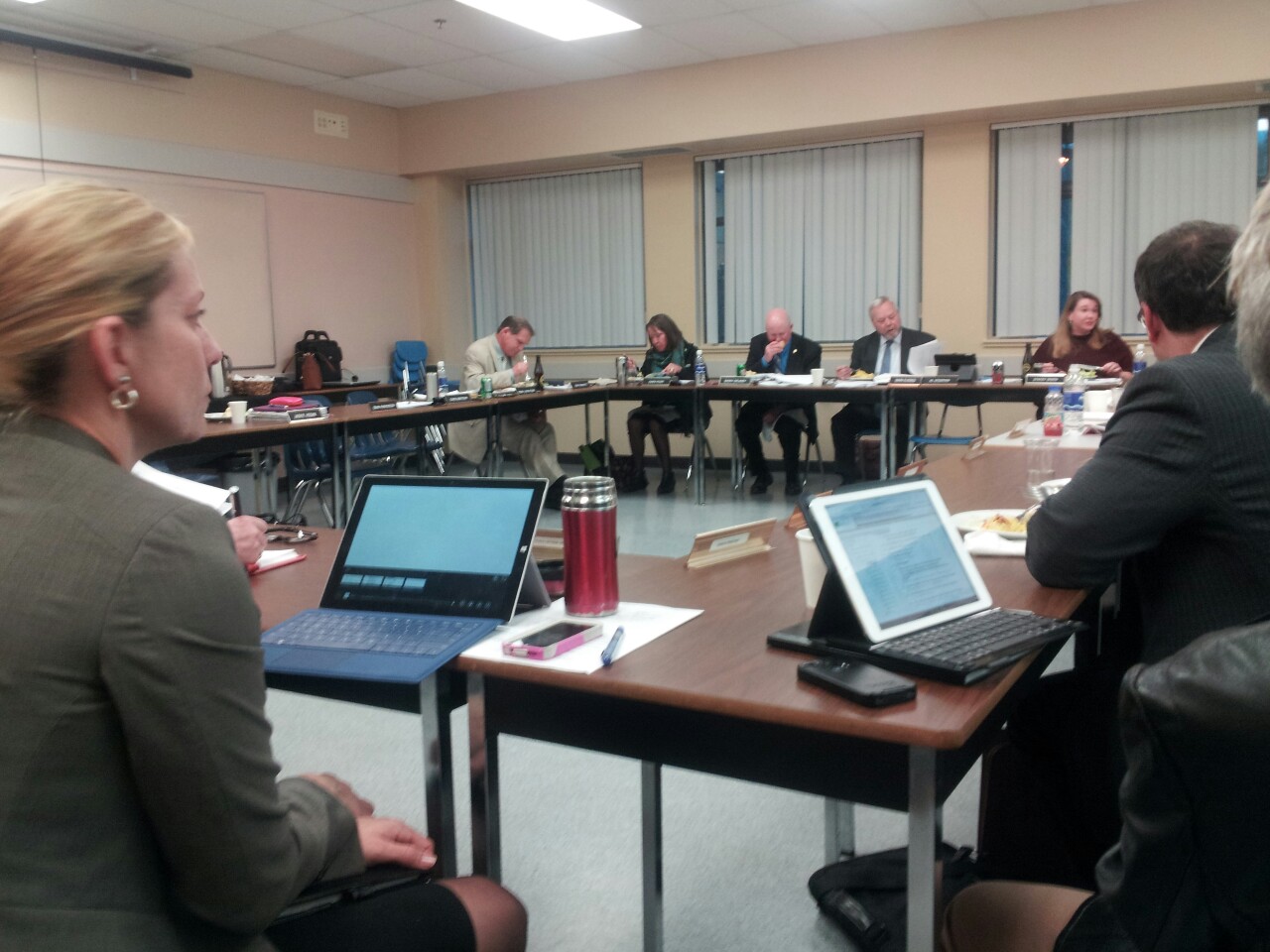By Michael Scoular (The Cascade) – Email
Print Edition: March 11, 2015

If nothing else, the recent organization of a petition and rally to protest the administrative reconfiguration of UFV’s Writing Centres has brought a significant question to the forefront of student consciousness: who makes the decisions that shape how UFV changes, and how do they enact these changes?
Jack Brown, the UFV alumnus who started the petition, spoke at the rally, and managed publicity for the “#SaveUFV” campaign, is not interested in leaving things at “nothing else.” Brown, following the protest, presented his argument before the university’s highest level of governance, the Board of Governors, and sent a letter to the province’s Minister of Advanced Education Andrew Wilkinson. With no significant movement in response, he is now taking UFV and its actions surrounding the Writing Centre to the BC Supreme Court.
The process for making significant alterations to services at UFV is the basis of Brown’s findings. Often, ideas will begin at the departmental or committee stage — committees can be temporarily formed to plan around a specific subject or event, but the most prominent are the Senate Standing committees. One of these, the academic planning and priorities committee (APPC), reviews curriculum alterations, degree proposals, and any establishment, revision, or discontinuation of educational centres on campus. From there, the APPC passes on its decisions to the Senate for review, which then, depending on the subject under discussion, must also go before the Board of Governors for final review.
At the March Board of Governors meeting, Brown spoke for 12 minutes, passed out the petition, and presented his findings before the Board.
“You have fiduciary responsibilities to the institution, but you also have statutory responsibilities under the Act,” he said, referring to the University Act, which requires the approval and consultation of the Senate then Board of Governors, in that order.
Brown said he had reviewed all minutes and agendas for the ACCP, the Senate, and the Board of Governors.
“I have found zero evidence that any of this process was even attempted,” he said. Since the announcement, UFV has released information explaining how an Academic Support Centre is different from the Writing Centre, but has not addressed the decision-making process.
In an interview with The Cascade, VP academic Eric Davis said, “The 20th-century university was centred around faculty and teaching; the 21st-century university is centred around students and student learning … the role of faculty is vital, [but] it’s changing.”
Davis also cited usage statistics as a reason for the reconfiguration, saying under a peer-tutor model, UFV predicts student access will triple from 1,000 to 3,000 a year. However, in dean of arts Jacqueline Nolte’s unrelated presentation before the Board of Governors, statistics for the Writing Centre showed over 1,200 students used the Writing Centre in Fall 2014, a 15 per cent increase from the previous year. There were also 46 workshops given during the same period; workshops have not been described as a component of the Academic Success Centre.
“Under these circumstances, trying to move ahead and close [the Writing Centre] down anyway is very problematic, and that’s why I came to you today and also why I wrote the minister,” Brown said. “I urge you all, as independent directors who have a stake in this university, to review the decision-making that’s occurred here and help to remedy the situation, both for the institution and for current and future students.”
Chair of the board Barry Delaney responded to Brown’s presentation, dismissing it on two points.
“A couple comments I would have for you is that: Good thing we’re not closing the Writing Centre!” he said. “You talked a lot about closing it and it’s not being closed.”
The semantics of the Writing Centre decision have taken up much of the debate over its future. The campaign to “save” the Writing Centre has referred to its “closure,” while UFV says it is an “expansion” into a new service. The key takeaway for students has been that the Writing Centre will not be continuing in its current state of operations, and that peer tutoring will be a completely different style of learning. Delaney did not discuss what that means for UFV’s process in terms of a service being “established, revised, or discontinued.”
“Secondly,” he said, “we take very seriously any charge that we are violating the University Act. We are not in violation of the University Act, and we are not in violation of any processes of any kind related to this issue … so I would be very careful about putting in writing those very egregious allegations of things like a breach of the University Act. It’s not a prudent thing to do, especially [for] someone heading out to law school.”
Delaney said the Board would review and respond to Brown’s letter. Six days later, Brown filed a petition with the Supreme Court, citing the same policies he presented to the Board of Governors. Because of UFV’s budget proposal to Senate coming this Friday, March 13, Brown was approved for short leave, and has a hearing Wednesday, March 11.
Brown is citing this as an example of “ultra vires by virtue of abuse of discretion.” He is calling for the current decision to be set aside and referred back to the APPC, where the approval process would have to follow the proper course of action — the process Delaney says the university is not violating.
“If I am successful in my action,” Brown writes in an email, “there will be an immediate injunction made against the university to prevent the Writing Centre from closing and the decision to close it will be overturned.”

